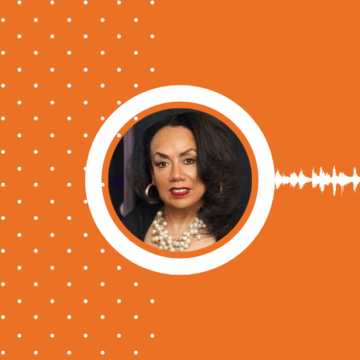Debt settlement companies negotiate with creditors on behalf of individuals to reach agreements for the partial payment of outstanding debts.
It is helpful to understand the debt settlement process, as well as the consequences if you decide to use a for-profit debt settlement. As an example, a settlement can remain on your credit report for several years, affecting your ability to secure new credit or loans at favorable terms.
Be sure to research debt settlement companies using federal, state, and local consumer financial protection resources.
Coping with past due credit card debt can be challenging, and it’s important to approach the situation with as much credible information as possible to help regain control and find a path toward financial well-being.
While the national nonprofit GreenPath Financial Wellness offers a highly rated and trustworthy Debt Management PlanDebt Management Plan, you have likely heard about another way to resolve financial challenges – through debt settlement.
Debt settlement companies are usually for-profit organizations that advertise heavily and offer people in debt a process of negotiating with creditors to accept a percentage of the full amount on debt that is charged off or severely delinquent.
Typically, with debt settlement, a lump-sum payment is offered to the creditor, often for less than the full amount owed, in exchange for forgiving the remaining debt. In debt settlement, the debtor usually makes a single, large payment to settle the debt, which may be less than the total outstanding amount.
For many people in debt, it can be helpful for you to understand the differences between a debt management plan and debt settlementdifferences between a debt management plan and debt settlement.
Noted below are some basic steps to take to learn about debt settlement.
1. Become Familiar with the Debt Settlement Process
As noted above, debt settlement companies do a lot of advertising and make claims about how easy it is to free yourself from a mountain of debt. These are generally for-profit companies whose employees are paid on a commission basis, based on the fees they collect from consumers.
A settlement company will attempt to negotiate a settlement offer with your creditor after you pay them enough money to make a reasonable settlement. They may suggest that you stop paying your creditors and instead begin making deposits into a special escrow account. However, your initial payments — totaling hundreds or even thousands of dollars over a period of months — may go toward paying fees to the debt settlement company before any of your money is set aside to begin accumulating for payment to your creditors.
During this time, the balance on your debt can continue to grow if interest and penalty fees continue to be charged by your creditor. The result is you may owe more than when you started and your credit may suffer. Your creditors may take legal action against you. Any missed payments to your creditors will reflect negatively on your credit report. And, if any debt is actually settled, you will likely owe income taxes to the IRS on the forgiven amount.
If you decide to use a debt settlement company, you can expect to give the names of your creditors and the amount you owe. The debt settlement company then gives you an estimate for reducing your debt along with a new, lower monthly payment. As advised by the settlement company, you stop paying your creditors and instead send payments to the debt settler.
The first one to four payments you send will likely go directly for the settlement company’s fees. The remaining payments are put into an escrow account. Once the account has grown to a certain amount whereby a lump sum payment can be made, the debt settlement company contacts your creditors and begins negotiating a settlement with them.
2. Understand the Consequences
On the surface, the option of debt settlement might look attractive. You pay the debt settlement company who, in turn, pays your creditors. In the end, everyone gets paid, you save some money, and you’re able to move on with your life. Remember the part about stopping payment to your creditors while a settlement is negotiated? That’s the part that might cause damage to your credit history.
Creditors don’t typically settle debts until they’re seriously delinquent. That means you have to stop paying your accounts. Meanwhile, late payments continue to accrue and are reported to the credit bureaus. Your credit score drops, you might begin receiving collection calls and you may be sued by your creditors. Late payments will remain on your credit report for up to seven years. Until you replace the negative payment history with some positive information, you’ll have difficulty getting new credit cards and loans. You may even have a hard time getting a job or a competitive insurance rate.
There will be consequences when it comes to your credit history. If the debt settlement company successfully settles with your creditors, the delinquent information isn’t erased from your credit report. Instead, your account is updated as “Charged-Off Settled” Or “Paid-Settled,” neither of which is as good as a “Paid in Full” account.
You will likely owe taxes on settled debts. The IRS treats forgiven debts as income and expects you to pay income taxes on it. Creditors will send you a Form 1099-C for reporting cancelled debts, but you’re supposed to include the debt in your tax return even if you don’t receive the form.
Debt settlement often strains the relationship between the debtor and creditors because the debtor is essentially paying less than what was originally owed.
The best approach is to understand the consequences when exploring this option. While you could save money, the negative consequences could be long-term. Look into a debt-management programdebt-management program and see if that would be a better option for you.
3. Check out Consumer Protection Resources
Not all debt settlement companies operate ethically. Some may charge high fees, promise unrealistic results, or fail to deliver on their services.
The Consumer Financial Protection Bureau was established by the U.S. Federal Government to make consumer financial markets work for consumers and the economy as a whole. CFPD is a trustworthy resource for consumers to help them avoid unfair, deceptive, or abusive practices.
Before you engage with a debt settlement company, take the time to search the CFPB’s Consumer Complaint Database.
On a State level, it is helpful to contact your state’s Attorney General as well as local consumer protection agencies to track any consumer complaints about the debt settlement company you are evaluating. Some states require debt settlement companies to be licensed. Visit your state regulator or ask your state Attorney General if the company is required to be licensed to work in your state
For another trusted resource, visit the Federal Trade Commission’s page on “Coping with Debt ” for more information.
Transform your finances with GreenPath’s expert support. Take charge of your money starting now.
800-550-1961877-337-33994. Connect With a Trusted Nonprofit Agency
The national nonprofit GreenPath offers trusted debt management plans, free credit counseling and debt counseling to help ease your financial stress, address your financial concerns, and develop a plan for living a financially healthy life.
Additionally, GreenPath’s LearningLab course “Debt Repayment OptionsDebt Repayment Options” is a free resource to work through for further insight.
As a trusted nonprofit, GreenPath counselors will treat you with care and respect and go over your options so that you can become debt-free.
Additional Resources
It’s important to note that with debt settlement and debt management, the choice between them depends on individual financial situations and goals.
The information shared here is for educational purposes only and is not legal advice. You should seek advice from a legal professional regarding your particular situation.
Additional educational resources include:
ConsumerFinance.Gov insight about debt relief
LearningLab Online Course – Debt Repayment Options
LearningLab Online Course – Debt Repayment Options
What’s the difference between Debt Management and Debt Settlement?
What’s the difference between Debt Management and Debt Settlement?
GreenPath Financial Service
Free Debt Counseling
Take control of your finances, get tailored guidance and a hassle-free budgeting experience. GreenPath offers personalized advice on how to manage your money.










